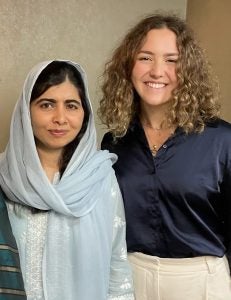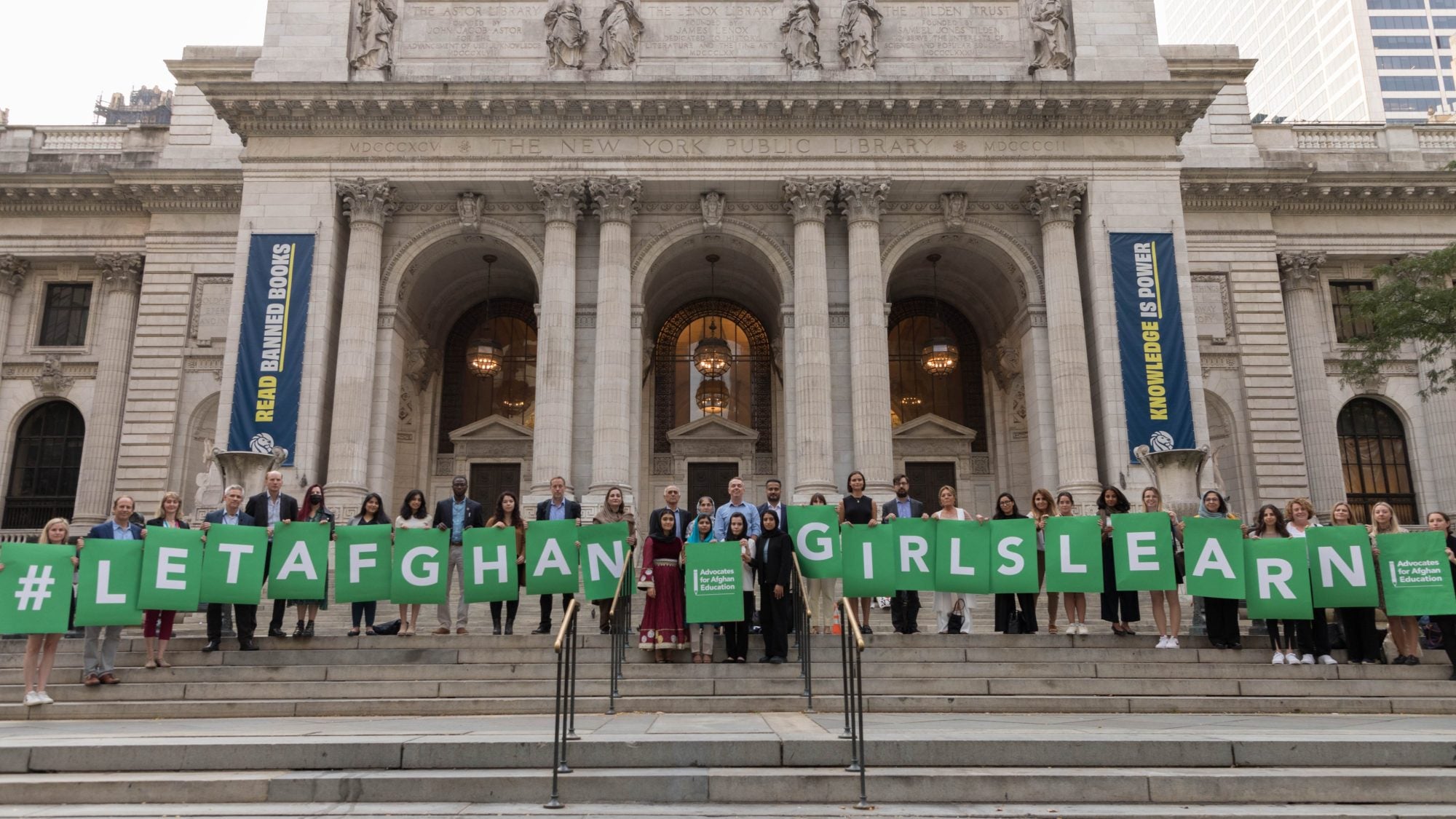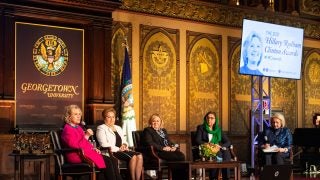
This past week, I had the immense privilege of meeting her at the United Nations General Assembly during a session on securing women’s rights in Afghanistan, organized by the Malala Fund, the Georgetown Institute for Women, Peace & Security and the Permanent Mission of Sweden to the U.N. The table was filled with diplomats, ambassadors, other dignitaries and Afghan women.
Afghan women in the room shared their stories on behalf of the millions of young women fighting for the future of their country. Most of them are students, like us, who are angry at watching their country collapse, but refuse to feel helpless.
As Georgetown students, we cannot keep ourselves distant from this issue. We live in the city where global decisions are made, where major protests are held. So, here are my three ways that Georgetown students can support Afghan women:
1. Take Georgetown Classes
There are many ways to approach the crisis in Afghanistan, and Georgetown is flourishing with resources. The following classes are offered in the spring 2023 semester and can spur us to make meaningful connections between knowledge and action.
- ARAB 363: Anthropology and Islam
- ANTH 351: Refugees/Asylees/Migrants/Trafficked Persons
- GOVT 3824: Religion, Ethics, World Affairs
- INAF 351: Post 1979 Pakistan, Afghanistan, Iran
- INAF 354: Terror, Islam, and the Media
- INAF 431: South Asia: Issues of War/Peace
- INAF 442: Human Rights, Humanitarian Crises & Refugees: Ethical & Religious Responses
- INAF 694: Refugee/Humanitarian Emergency
- IPOL 199: State Building in Afghanistan (recently added)
- JUPS 404: Humanitarianism
- SEST 558: Political History of Afghanistan
- SEST 573: Security Issues in South Asia
- SEST 580: Stability Challenges in South/Southeast Asia
2. Advocate for the Afghan Adjustment Act
Legislators from both parties in the U.S. House of Representatives and U.S. Senate recently introduced the Afghan Adjustment Act, a bill that provides a path to permanent residency for the more than 70,000 Afghans paroled into the United States in the wake of the U.S. withdrawal from Afghanistan. Check out this factsheet for an in-depth overview.
Students can contact their legislators to co-sponsor the passage of the Afghan Adjustment Act. Use the premade email templates and social media toolkits published by EvacuateOurAllies.org.
3. Support the Georgetown Institute for Women, Peace & Security
The Georgetown University Institute for Women, Peace & Security, housed in our School of Foreign Service, focuses on the important role women play in preventing conflict, building peace, growing economies and addressing global threats through rigorous research, global convenings and strategic partnerships. In fact, the recent discussions at UNGA were moderated by Ambassador Melanne Verveer, executive director of GIWPS and the first ambassador-at-large for global women’s issues from 2009-2013.
GIWPS recently established Onward for Afghan Women, an initiative aimed at elevating and equipping Afghan leaders with opportunities to continue their advocacy on behalf of other Afghan women.
Georgetown students can support the institute in several ways.
- Donate: With your support, the organization can continue investing in new research, welcoming foreign officials for discussions on women’s topics and providing opportunities for students and fellows.
- Sign Up for the Newsletter: A simple click will enable you to access podcasts, research and lectures hosted by Afghan women.
- Get Involved: Students can apply to be a research assistant or fellow or complete a Gender, Peace & Security graduate certificate.


